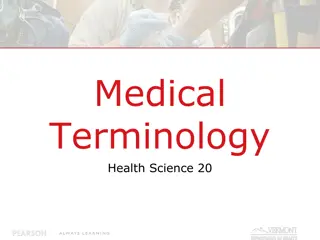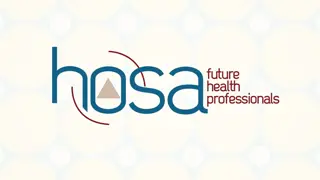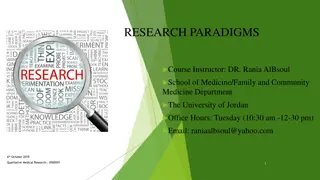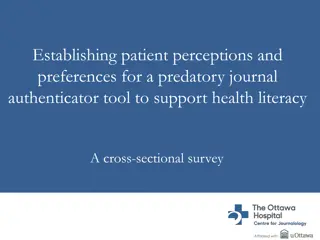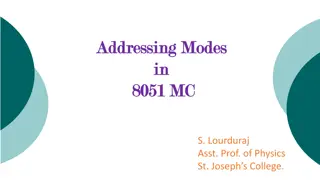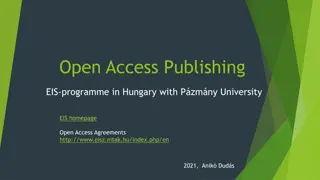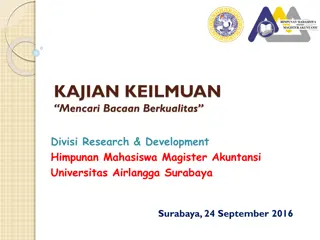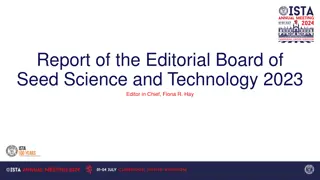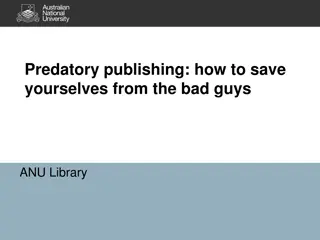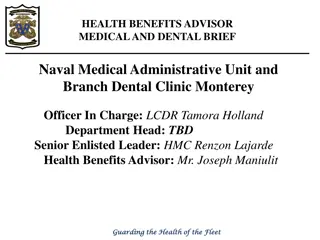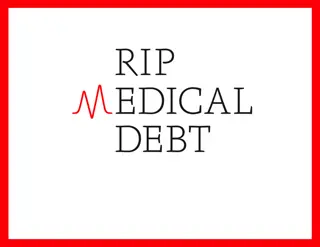Addressing Predatory Publishing Practices in Medical Research
Exploring the detrimental impact of predatory publishing on scientific integrity, the joint position statement by AMWA, EMWA, and ISMPP highlights the unethical practices of predatory journals. Characteristics, such as misleading metrics and questionable editorial boards, are discussed, emphasizing the responsibility of medical professionals to combat this issue through education and vigilance.
Uploaded on Sep 15, 2024 | 0 Views
Download Presentation

Please find below an Image/Link to download the presentation.
The content on the website is provided AS IS for your information and personal use only. It may not be sold, licensed, or shared on other websites without obtaining consent from the author. Download presentation by click this link. If you encounter any issues during the download, it is possible that the publisher has removed the file from their server.
E N D
Presentation Transcript
AMWA EMWA ISMPP Joint Position Statement on Predatory Publishing
Background: Exploding numbers of open access (OA) journals, including predatory journals Predatory journals and publishers undermine the quality, integrity and reliability of scientific research Predatory publishers exploit the Gold OA model (pay to publish) solely for financial gain. They misrepresent ethics in editorial and peer review, journal operation, article processing charges, dissemination, indexing and archiving.
American Medical Writers Association, European Medical Writers Association & International Society for Medical Publication Professionals (2019) AMWA EMWA ISMPP joint position statement on predatory publishing. Current Medical Research and Opinion DOI: 10.1080/03007995.2019.1646535
Short list of predatory characteristics Business practices Editorial and peer review Publication practices Aggressive email solicitation Subverted peer review (e.g., overly quick, absent) Misleading metrics Article processing charges often not transparent Questionable expertise or fictional editorial board False claims of impact factor or indexing Journal name, format or logo deviously mimics legitimate ones Overly simple submission (e.g., no COI or authorship qualifications) Lack of digital preservation Publisher has large fleet of many specialties or journals, may have few published articles Lack of information on editorial/review board Do not adhere to good publication practices by WAME, COPE, ICJME or CSE Website suspicious: no or fake address, possible low quality Author can t un-submit from predatory journals
AMWA EMWA ISMPP working group Convened January 2019, members included: Association Staff liaison Subject matter experts EMWA Tiziana von Bruchhausen/ Beatrix Doerr Sl vka Bar nikov Julia Donnelly AMWA Shari Rager Barbara Good Mary Kemper ISMPP Al Weigel Jan Seal-Roberts Donna Simcoe
Aims of joint position statement Medical writers/editors and researchers have responsibility to evaluate the integrity, history, practices, and reputation of journal Conscious and deliberate submission to a predatory journal is unethical AMWA, EMWA, and ISMPP are committed to educating our members about predatory publishing
Avoid predatory publishers and journals Adhere to good publication practices, e.g., COPE, WAME? Is journal in Directory of Open Access? Indexing verified? e.g., PubMedCentral Journal following best practices? Transparent? Editor in charge credible with contact information? Information on APCs clear? Impact factor verified? e.g., J Citation Reports Checked online lists and resources? Journal evaluation tool?
On-going and next a collaborative effort Link to CMRO and follow on Twitter AMWA: Nov-2019 conference, December journal EMWA: Nov-2019 conference, print statement in MEW, September 2019 ISMPP: Aug MAPP newsletter, 9/6 meeting and West conference Joint press release July 2019 Endorsement by other societies Translation Slide deck EMWA ambassador program Other suggestions?






